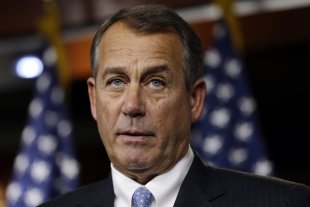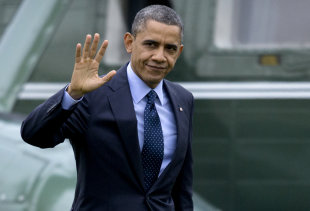SINGAPORE (Reuters) – When South Korean automaker Hyundai Motor Co announced last month it had overstated the fuel efficiency levels on around one million of its cars in the United States and Canada some investors were left fuming more than others.
Some had already sold their shares before the announcement on November 2. The stock fell 4 percent on November 1 with about 2.2 million shares changing hands, the highest trading volume of the year at that point.
“This smells pretty bad,” said Robert Boxwell, director of consulting firm Opera Advisors in Kuala Lumpur who has studied insider dealing patterns.
“It would have fallen into our suspect trading category,” he added.
Boxwell spots suspect trading by looking at how much the volume diverges from the average level in the days before a market moving announcement. In the Hyundai instance, the volume was more than five standard deviations, a measure of variation, away from the daily average of 598,741 shares over the past year.
A Hyundai spokeswoman declined to comment.
Research from the Capital Markets Co-operative Research Centre (CMCRC), an academic centre in Sydney that studies financial market efficiency, found that 26 percent of price-sensitive announcements in Asia Pacific markets showed signs of leakage in the first quarter of this year, the most recent period for which data was available.
That compared with 13 percent in North American markets.
The CMCRC says it looks for suspected information leaks by examining abnormal price moves and trading volumes ahead of price-sensitive announcements.
Investors say one reason for leaks in Asia has been low enforcement rates for insider trading and breaches of disclosure rules. Enforcement in some markets is virtually non-existent.
There are also misconceptions about whether trading on non-public information is a crime.
“The idea that insider trading is wrong rather than smart is only being ingrained in the current generation of Asian players, not the older generation who are often still in the driving seat,” said Peter Douglas, founder of GFIA, a hedge fund consultancy in Singapore.
LOSS OF CONFIDENCE
Japan’s largest investment bank Nomura Holdings was embarrassed this year after regulatory investigations found it leaked information to clients ahead of three public share offerings.
Nomura has acknowledged that its employees leaked information on three share issues it underwrote in 2010. In June, it published the results of an internal investigation that found breaches of basic investment banking safeguards against leaking confidential information and announced a raft of measures to prevent recurrence.
The bank was also fined 200 million yen ($ 2.37 million) by the Tokyo Stock Exchange and 300 million yen by the Japan Securities Dealers Association.
Such leaks hurt companies’ share prices in the long run because investors put in less money if they feel they are not on a level playing field.
“It is very damaging. You may not know how much money you’ve lost but if there is not confidence that the regulators are prosecuting and enforcing the rules on this then it undermines investor confidence and liquidity,” said Jamie Allen, secretary general of the Asian Corporate Governance Association.
The issue isn’t being ignored. Many Asian markets such as Hong Kong and China have tightened their rules on insider trading over the past decade.
Indeed some investors feel that while leaks and insider dealing are unfair, regulators in the region have more serious issues they should be tackling.
“I would like to see the regulators spend more resources on investigating and prosecuting fraud against listed companies, which severely damages shareholder value,” said David Webb, a corporate governance activist in Hong Kong, arguing insider dealing as less of an impact on a company’s long-term share price.
HTC AND APPLE
A week after Hyundai’s announcement about its problems in the United States, there was an unexpected move on the Taiwan Stock Exchange.
Shares in smartphone maker HTC Corp jumped almost seven percent on Friday, November 9, hitting the daily upper trading limit. On Sunday came the surprise announcement that the company was ending its long-running patent dispute with Apple Inc , a move seen as a positive for the stock.
The Taiwan bourse announced it was investigating the trading patterns to see if there was a possible leak.
When asked for comment, HTC referred back to a November 13 statement in which the company said it had kept the Apple settlement process confidential and has strict controls on insider trading.
Michael Lin, a spokesman for the Taiwan Exchange, told Reuters on Friday that the bourse is still working with the regulator on the case.
‘ENORMOUS LOSSES’
Michael Aitken, who oversees research at the CMCRC, said many other Asian markets lack tough enough rules to force information to be released as efficiently and timely as possible, a primary reason for the prevalence of leaks.
“Poor regulation hampers enforcement efforts,” he said pointing out that few markets have the “continuous disclosure” rules used in Australia which require listed companies to release material information as soon as possible.
In Korea, when Hyundai shares started to fall, rumours began swirling that news about a problem with some of its cars was on its way, but investors say it took the company too long to disclose what exactly was happening.
“Hyundai at that time did not confirm the rumours. We suffered enormous losses because of this,” said one fund manager, who declined to be named because he was not authorised to speak to the media.
An official from Korea Exchange declined to comment on whether it was investigating this case, saying only that the exchange looks carefully into possible cases of insider trading.
Across Asia, regulators concede that many company executives and insiders still do not appreciate that leaking or trading on material, non-public information is an offence.
“People don’t even know they are engaging in insider trading, for example if their friends are talking about it on the golf course,” said Tong Daochi director-general for international affairs at the China Securities Regulatory Commission, during a regulation conference last month.
“We try to tell society, what are the criminal issues, what are the insider trading issues? For example we have held 27 press conferences to tell the public what kind of activities are involved in insider trading and to let people know that this is an active crime.” ($ 1 = 84.2600 Japanese yen) ($ 1 = 0.6147 British pounds)
(Reporting by Rachel Armstrong; additional reporting by Nishant Kumar in HONG KONG and Hyunjoo Jin in SEOUL; Editing by Emily Kaiser)
Wireless News Headlines – Yahoo! News
Title Post: Insiders steal a march in leak prone Asian markets
Rating:
100%
based on 99998 ratings.
5 user reviews.
Author:
Thanks for visiting the blog, If any criticism and suggestions please leave a comment




